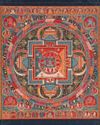
All morning, Rosalie had been migrating between platforms in Amsterdam Centraal, from Track 4 to Track 10 then to Track 7 to Track 11 and back to 4. The trains to Brussels, both express and local, had been cancelled one after another. A family—tourists, judging by their appearance, as Rosalie herself was—materialized at every platform along with Rosalie, but now, finally, gave up and left, pulling their suitcases behind them. A group of young people, with tall, overfilled backpacks propped beside them like self-important sidekicks, gathered in front of a monitor, planning their next move. Rosalie tried to catch a word or two— German? Dutch? It was 2021, and there were not as many English-speaking tourists in Amsterdam that June as there had been on Rosalie’s previous visit, twenty years before.
She wondered what to do next. Moving from track to track would not deliver her to the hotel in Brussels. Would cancelled trains only lead to more cancelled trains, or would this strandedness, like ceaseless rain during a rainy season or a seemingly unfinishable novel, suddenly come to an end, on a Sunday afternoon in late May or on a snowy morning in January? Years ago, an older writer Rosalie had befriended inquired in a letter about the book she was working on: “How is the novel? One asks that as one does about an ill person, and a novel that’s not yet finished is rather like that. You reach the end and the thing is either dead or in much better shape. The dead should be left in peace.”
A novel would not get better if the characters spent all their time wandering between platforms. What Rosalie needed was not a plot twist or a dramatic scene but reliable information. She found a uniformed railway worker and asked about the cancelled trains.
Denne historien er fra January 23, 2023-utgaven av The New Yorker.
Start din 7-dagers gratis prøveperiode på Magzter GOLD for å få tilgang til tusenvis av utvalgte premiumhistorier og 9000+ magasiner og aviser.
Allerede abonnent ? Logg på
Denne historien er fra January 23, 2023-utgaven av The New Yorker.
Start din 7-dagers gratis prøveperiode på Magzter GOLD for å få tilgang til tusenvis av utvalgte premiumhistorier og 9000+ magasiner og aviser.
Allerede abonnent? Logg på

MEAN TIME
“Hard Truths.”

ENLIGHTEN ME
The secret beauty of mandalas.

THE BEST OF THEM
His was a genius for the ages. Will Gottfried Leibniz ever get his due?

DEATH CULT
Yukio Mishima’ tortured obsessions were his making—and his unmaking.

Prophecy
The night of Dev’s twenty-second birthday, he was invited to sit with the elders after dinner.

A TALE OF TWO DISTRICTS
Lauren Boebert and Colorado’s red-blue divide.

THE TIKTOK TRAIL
Andean migrants draw others to the U.S. with videos depicting themselves as living the American Dream.

LOVE AND THEFT
Did a best-selling romantasy novelist steal another writer's story?

OUR NEW TWO-FACTOR AUTHENTICATION SYSTEM
Our two-factor authentication system is expanding because text messages and e-mailed codes are becoming less secure. Also, we’re committed to making sure your log-in process is more of a hassle than it needs to be.

STILL PROCESSING
Why is the American diet so deadly?